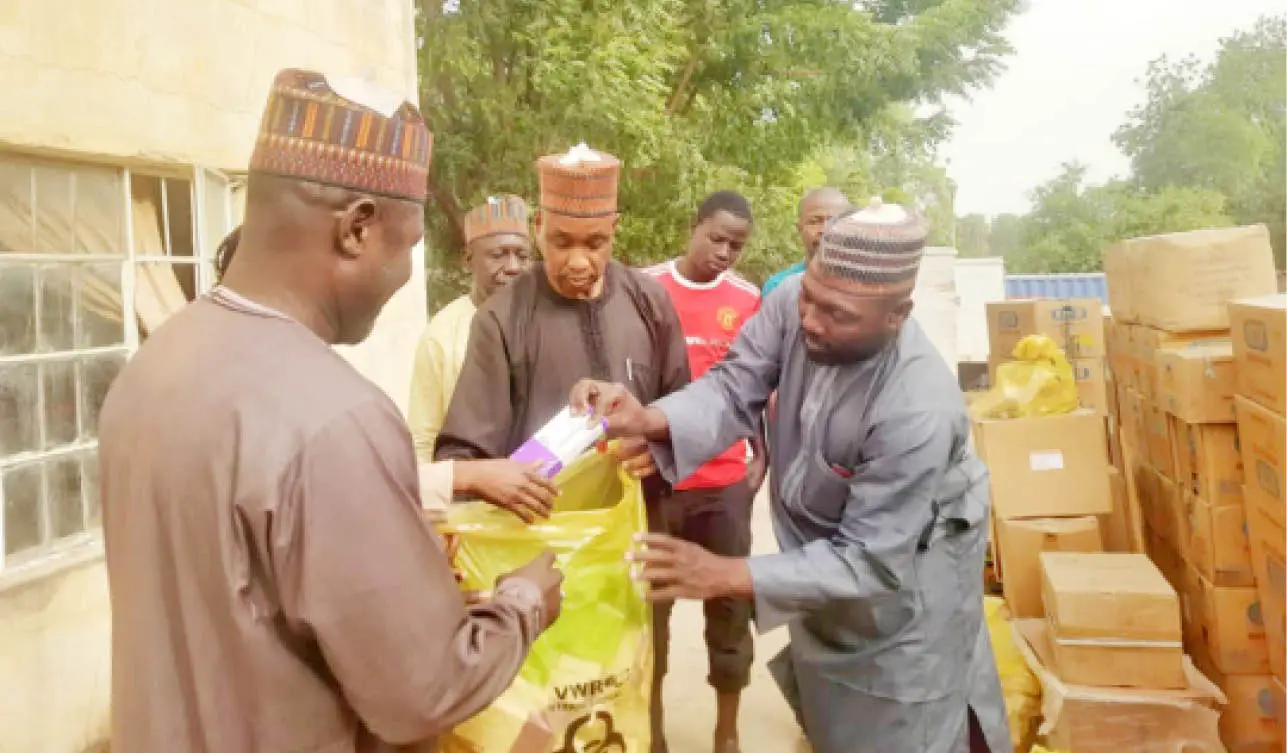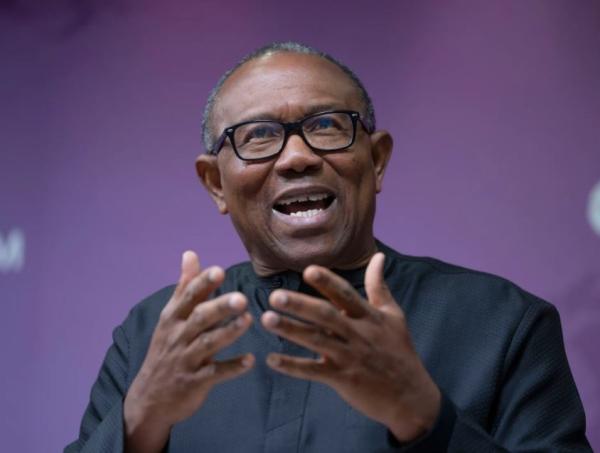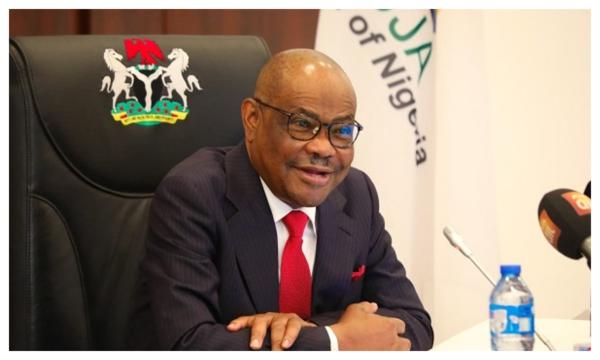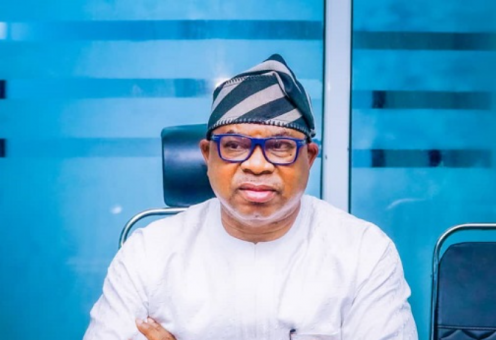
Governors have rolled out social intervention programmes aimed at providing succour to people in their states, especially in the face of the cash crunch and scarsity
Daily Trust Saturday reports that millions of people across the country, especially those that rely on informal sector for businesses, are now stranded.
Many cannot afford to buy foodstuff or transport themselves to markets or workplaces due to cash crunch.
With this in view, some governors have rolled out initiatives to reduce the hardship although some citizens and the opposition are giving it political coloration.
Since the cash swap of the Central Bank of Nigeria (CBN) took effect, Nigerians have continued experiencing nationwide scarcity of the naira following the introduction of the redesigned N200, N500 and N1, 000 notes by the apex bank.
The CBN had initially fixed February 10 as the deadline to phase out old naira notes.
The scarcity of the naira and the lingering fuel crisis have impacted on the means of livelihood of many Nigerians.
The governor of Borno State, Professor Babagana Zulum, ordered the release of over N300 million worth of drugs and other medical supplies to government hospitals for free distribution to patients, most of who were facing difficulties in making payments due to scarcity of new and old naira notes.
The Commissioner for Health and Human Services, Professor Mohammed Arab Alhaji, disclosed this while unveiling the drugs at his ministry’s stores located along Baga road in Maiduguri.
Arab emphasized that the drugs must be given free to patients that have no money at hand or those that have problems in accessing their funds to pay for their service.
He said officials would rely on patients to be honest.
“We know some people may have money and still demand free drugs by pretending that they lack funds. They should fear Allah. It is sad that some dishonest people refuse to help those in need,” the commissioner said, quoting Governor Zulum and urging health workers to be vigilant.
Confirming what the commissioner said, a mother of three identified as Fanna said, “I got free drugs at the specialist’ hospital in Maiduguri.”
Kyari Modu, a teacher said he was also attended to at the Umaru Shehu Hospital in Bulunkutu.
In Ogun State, Governor Dapo Abiodun, last week rolled out plans to distribute 400,000 food items to vulnerable residents as palliative measures.
While apologising to the people of the state for the inadvertent hardship and inconveniences the naira swap policy has caused them, Abiodun appealed to security agencies to handle the situation with professionalism and deeper maturity.
“We will be distributing the first phase of 400,000 food items through our social investment officers in each local government area to the communities, starting from this weekend.
“We hope this social intervention provides some succour to our people. Again, we apologise for the inadvertent hardship and inconveniences this policy has caused all of us,” he said.
Our correspondent reports that some of the food items being distributed include rice, noodles and gari, among others.
Some residents thanked the governor for the initiative.
Kemi Sule, a trader in Abeokuta, said the cash swap had turned some of them to beggars.
“I and my husband are civil servants; we have money in the bank but we are unable to withdraw and buy food for the family. I see the intervention by the state government as timely.
“The problem is that most of our traders live by the day; they need cash when you want to pay for a mudu of rice or garri, which is not more than N1,000,” she said.
Ismail Habeeb, a taxi driver, said some of them had parked their cars because of the confusion associated with the cashless policy.
“Out of 10 passengers you rarely see two with cash to pay you when you take them to their destinations. And come to think of it; how can someone transfer N100 or N200 to your bank account? It doesn’t make sense. That is why I parked my car and turned to a beggar of sorts. I thank the governor for the palliative; may God bless him,” he said.
In Edo State, Governor Godwin Obaseki directed that all Edo City Transport Service (ECTS) buses are to provide free services to passengers as a means of reducing the effect of the cash crunch the people are going through.
The governor, in a statement by his special adviser on media projects, Crusoe Osagie, said the directive was applicable to all routes and effective till February 20.
While calling on the people to remain calm and law-abiding, he assured that normalcy would be restored.
Martins James, a mason in Benin, said he was happy with the initiative.
“Like millions of Nigerians, I am an artisan and I live by the day. Honestly, this is the first time I opened an account, but I am yet to benefit from it because I cannot withdraw money.
“It is difficult going to work. I thank the Edo State Government for the free transportation. What we do now is to give our clients our accounts to transfer our wages of the day. As a mason, I get N3,000 after the day’s work. I pray that the situation would improve so that we can start getting cash,” he said.
But a politician, Mike Ego, alleged that the initiative by the government was politically motivated.
“The buses are not everywhere, and they ply for few hours. Most people rather find alternative means to get to their places of work,” he said.
In Kwara, Governor AbdulRahman AbdulRazaq introduced palliatives, which will include cash transfer to widows, pensioners, transporters, marketers, smallholder farmers and other vulnerable people.
He said it would be done through the Kwara State Social Investment Programme (KWASSIP) for proper coordination and accountability.
On Monday, the government commenced its free transport services for students and staff of some tertiary institutions in the state.
The special assistant to the governor on students affairs, Bello Mubarak, who supervised the exercise across the designated motor parks in Ilorin, said the free bus ride was considered necessary by the government to ease the suffering of students of the affected campuses amid the difficulty imposed by scarcity of fuel.
He said the governor, after receiving complaints of the student unions’ leaders, deemed it fit to come to their aid by conveying them to campuses free of charge.
Suleiman Mubarak Olanrewaju, a student of the University of Ilorin and member of the School Transport Committee, said the initiative came in handy for them.
In Lagos, Governor Babajide Sanwo-Olu announced the establishment of food banks in various parts of the state for the distribution of food items to vulnerable families hit by the lingering naira and fuel crises. The governor also directed a 50 per cent fare reduction in all state-owned transportation services.
In a related development, the Speaker of the House of Representatives, Femi Gbajabiamila, also launched the second edition of the GbajaRide community transportation initiative as part of plans to ease the movement of residents and students in Surulere.
Gbajabiamila announced that a total of 15 medium-sized buses with a 26+1 capacity and 20 air-conditioned 18-seat buses were earmarked for the transportation scheme, which would commute an estimated 5,000 Surulere residents and 2,000 students on daily trips.
While GbajaRide provides transportation service for the people of Surulere at a discounted rate, it is free for secondary school students, teachers and residents of age 75 and above from designated bus stops in Surulere.
Fatau Ali, a trader at Oshodi, thanked the government and Gbajabiamila for the initiative.
“Of course, some people are saying it is all politics, but if this is politics, so be it; and I pray that other politicians would learn from this because the masses are benefiting.”
Due to the sufferings associated with the scarcity of New naira notes across the country, Kano State government has ordered its vehicles under the Kanawa bus service to commence free ride within the state metropolis.
The directives followed the approval of the state governor, Dr Abdullahi Umar Ganduje who said the vehicles should go round the state to alleviate sufferings of the people in the state.
Recall that the new naira policy recently introduced had plunged the country into hardship as the new Naira notes are not available.
However, to cushion the effects of the hardship, the government directed that the long buses, go round the metropolitan areas to transport residents to their respective businesses places, offices and schools.
Expectedly, the development has generated mixed reactions, especially among the political class, who viewed it as a subtle vote-buying approach ahead of the 2023 general elections.
In Ogun, for instance, Daily Trust Saturday observed that most of the food items distributed were branded with the governors’ images, logo of their parties, as well as campaign slogans.
The Ogun State chairman of the New Nigeria People’s Party (NNPP), Oginni Olaposi, accused Abiodun of playing on the intelligence of voters, saying the crisis was created by the APC government.
“I think Dapo Abiodun is trying to do this because he knows the election is around the corner and the All Progressives Congress (APC) is sinking. He can’t distance himself from the suffering and plight of Ogun State indigenes at this point in time. The policy of the APC is barbaric, anti-people and condemnable,” he said.
But the chief press secretary to the governor, Kunle Somorin, warned opposition parties against twisting the intention of the government, saying the palliative measures were borne out of the governor’s commitment to people’s welfare.
“Anybody thinking the intention is to buy votes is insulting both the government and our people,” he said.
Alhaji Bashiru Adigun, the special adviser, political to the Kwara State governor, said those criticising the gesture were not sincere to themselves.
“All over the country, such measures have been taken by governors; and I think it was a policy of the Governor’s Forum to ameliorate the hardship of the people as a result of the naira design crisis and fuel scarcity across the country.
“Even members of the opposition are not left out from the palliatives. So it is not a party thing but cuts across the state. Where does the issue of vote buying come in?” Adigun queried.
The national secretary of the Nigeria Political Science Association (NPSA), Dr Bakare Adebola said, “Election period in democracy is always one of suspicion, most especially on incumbent governors or presidents seeking another term.
“During the first time of President Muhammadu Buhari when the government was dishing out ‘trader moni’, at a point, people started saying the vice president was touring states to buy votes of market women and other informal sector players. So there is always that suspicion, which is not only peculiar to Nigeria.”
He added that there was nothing wrong with the palliatives, which are meant to ameliorate the suffering of the masses.
The head of the Department of Political Science, University of Ilorin, Muhammad Alada, told Daily Trust Saturday that the governors giving out palliatives under the guise of trying to cushion the effects are doing “what they ought to do.”
“But the timing appears suspicious, coming at a period of transition. This is not the first time we have experienced the issue of fuel scarcity, but no attempt was made to cushion the effect. So it appears there is a string attached, but it is the right thing,” he said.
In Kano, Daily Trust Saturday gathered that while some people are taking advantage to enjoy the free ride, others say they have experienced delays.
“It is a good initiative because I had to trek for like one hour yesterday because I don’t have cash but with the vehicle working free today I didn’t have to suffer,” a resident, Aminu Lawan said.
A student, Amina Ali also appreciated the government for the free ride, saying “Without this, I wouldn’t have gone to school because my parents have no cash to give me for transportation.”
Meanwhile, one of the drivers of the bus said some people are avoiding the free ride because the bus takes long before it is filled up and that its not as fast as tricycles.
He said they have been working for four days now and that they normally start around 7a.m and close at 7p.m.
Peter Moses, Abeokuta, Mumini Abdulkareem, Ilorin, Yvonne Ugwuezuoha, Lagos & Zahraddeen Yakubu Shuaibu, Kano






















